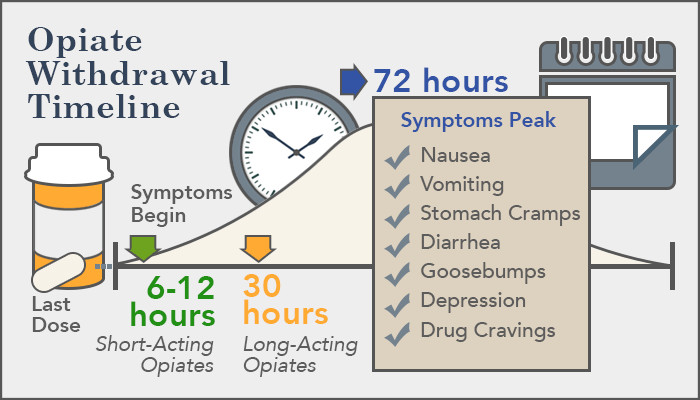The ever-growing research of the science behind addiction and highly addictive drugs like opioids has helped us understand much more about the way the human brain works. Current addiction studies have determined that it is a chronic and progressive brain disease that is caused by the alteration of brain function, causing people to seek out destructive substances or behaviors compulsively. When speaking in terms of substance misuse, opiate addiction is one of the hardest to overcome due to the way the chemicals in the brain are affected.
With the opioid crisis in America still affecting communities at record levels, it’s time we take a look at the long-term effects of opioid use and consider how best to handle addiction with each individual impacted.
What Are Opiates and Opioids?
The terms “opiate” and “opioid” have very similar definitions. At first, we used the term “opiate” for any drug derived from opium, a substance extracted from the poppy plant. We then used “opioid” to refer to synthetic drugs that imitate opiates. Now, we use “opioids” to refer to any drug that falls into these two categories. In this blog post, we’ll switch between “opioids” and “opiates” to refer to the entire drug category. Many people use these terms interchangeably.
An opioid drug can fall into one of four classes:
- Endogenous: Opioid compounds produced in the body, such as endorphins
- Opium alkaloid: Drugs made with opium, including codeine and morphine
- Semi-synthetic: Opioids synthesized from opium, such as heroin and oxycodone
- Synthetic: Opiates created in a laboratory using chemical reactions, including fentanyl
Opioids come in prescription and illicit forms. Doctors prescribe them for acute pain caused by surgery and certain medical conditions. However, opiates such as heroin have illegal purposes. Prescription opioids can also go on the black market for illicit use in a process known as diversion. All types of opioids have addictive properties that can influence someone to misuse them.
The methods of administration for opioids depend on the specific drug. Prescription opioids have many varieties that differ by use, including pills, patches, lozenges, and injections. Illicit opioids include powders that the user inhales through the nose, injectable solutions and pills. An opioid’s method of use changes the onset and length of effects.
Opiate Effects
Opiates are prescribed and administered to treat pain, as their chemicals mimic those that are already naturally occurring in the brain. These painkillers contain chemicals that bond with opiate receptors in the brain, causing pain-relieving effects by working their way through the nervous system. The human body has endogenous opioids that participate in its natural painkilling process. During the body’s inherent pain-relieving procedure, the endogenous opioids attach to the opioid receptors. Since the receptors bind to any opioid chemical, opiate medications enhance the body’s ability to reduce pain.
The body’s natural opioids and opioid receptors also have a role to play in mood and the stress response. When you experience a stressful situation, the opioid system activates to regulate your reaction. As a result, taking opioids can make you feel relaxed and calm.
When taken as directed, opioid medications can relieve severe pain. They help patients with acute and chronic conditions feel more comfortable and improve their daily function. However, they can also become addictive when taken without proper supervision.
What Do Opiates Do in Excess Amounts?
When opiates are taken in higher doses than prescribed for pain-relieving effects, a different kind of feeling is achieved, one that is euphoric. The brain is flooded with neurochemicals like dopamine and serotonin, which trigger a response from the pleasure and reward pathway of the brain. These sensations are much higher than natural feelings of pleasure. Opioids cause the brain to release between two to 10 times as much dopamine as natural brain receptors, and the body becomes accustomed to these higher dopamine levels.
Think of the difference between the two as listening to the radio at a normal level in the car versus hearing that same song live in concert standing next to a speaker. These feelings are so intense that they begin to train the brain they are superior to those that are naturally occurring, reinforcing to the brain that it should continue to seek this drug more and more. Slowly, the brain begins to prefer these effects to anything else, causing the cycle of addiction to spin out of control.
Opiate Tolerance
When someone builds a tolerance to opiates, their brain signals that it needs more opioid receptors to feel good. The person misusing opiates will start to seek more of them as a result. These higher doses are required for someone to feel the euphoric rush from the first couple of times the effect was experienced.
With drugs like opiates, larger doses are needed over time due to the buildup of tolerance levels. Because a person has a certain level of the drug present in their system, they will need more of it to feel the effects. When more of the drug is taken, they will have more of the drug in their system than there are opiates.
After prolonged use, the brain will begin to develop more of these opioid receptors, which will demand more of the drug to bind with to feel “content.” This can result in a person continually needing to increase their dosage to feel anything at all, often resulting in people taking in nearly lethal amounts of drugs that can lead to an overdose.
Opiate Withdrawal
Withdrawal from opiates coincides with a user’s growing tolerance. The more they use the drug, the more the body builds a need for higher doses to feel any effect. Most times, people who use opiates hit a level where they no longer feel pleasurable effects but continue to use because of the very painful withdrawal that is experienced when they stop.
During opioid use, the brain reduces production of its natural hormones and neurochemicals. It begins to rely on the chemicals provided by opiates instead of its endogenous compounds. A person with opioid use disorder experiences withdrawal symptoms because they have a deficit of these chemicals without opiate use. For this reason, withdrawal is not just physically painful, it is also mentally difficult. It can make “quitting” very difficult and seemingly impossible for some.
How Do Opiates Change the Brain?
Opiate effects modify the way that the brain processes stress and pain. When the body becomes dependent on opioids, it can lose its ability to tolerate pain on its own. Research suggests that prolonged opiate use can reduce the body’s innate pain-fighting abilities. As a result, the person using opioids needs to rely on them to relieve pain. Due to this phenomenon, a person undergoing withdrawal can have increased feelings of pain.
When a person with an opioid dependence receives the “normal” amount of opioids for relieving pain, they don’t experience the intended effects. Their brain needs an increased number of opioids to occupy all its receptors. Since opioid receptors regulate mood and emotion, prolonged opiate use can have a negative effect on these functions. The reliance on opioids to manage mood can make opiate use disorder more difficult to experience.
Opioid use may also have a link to mental health symptoms. People who have mental health conditions without knowledge of healthy coping skills have a higher chance of developing an addiction. When someone has an opioid use disorder because of their mental health, they are victims of a disease — not a moral failure. They have an increased risk that we can address during treatment.
Long-Term Effects of Opiates
There are long-lasting effects of opiate addiction that can linger well into recovery. Once someone has attended treatment, the psychological effects can last for many years. This is why medication-assisted treatment along with a whole-patient approach to recovery that involves counseling and group therapy is the most effective method of overcoming opiate addiction. This is a disease that needs to be treated as such.
People who are dealing with addiction should not be seen differently from others with chronic illnesses, and treatment should be encouraged and supported. With the proper methods, breaking the cycle of opiate addiction can be achievable, and the goal of long-lasting recovery attainable.
Brain Recovery From Opiates
Opioid use disorder acts as a chronic brain disease like depression or ADHD, meaning that it can become manageable with the right care. People with opioid addiction may need to manage their condition for the rest of their lives. However, like any other chronic disease, the symptoms can improve with treatment.
Doctors use methods like medication-assisted treatment (MAT) to help the brain recover from opioid use disorder. MAT aims to satisfy the brain’s need for extra opioids and taper off its reliance over time. The MAT medications, methadone and buprenorphine, activate the opiate receptors. Since they take a longer time to absorb into the bloodstream than other opioids, they don’t cause euphoria. These medications can also block the effects of opioid drugs, discouraging the patient from using them. As the patient recovers, their brain can heal from opioids’ effects.
MAT also involves counseling that helps the patient learn coping skills. During their therapy sessions, the patient challenges their thoughts and behaviors about opioids. Counseling lets the patient retrain their focus on life’s difficulties and fighting drug abuse. They can craft healthy methods to manage stress, emotions, and difficulties.
As part of the recovery process, a patient may experience a relapse. When relapse happens, the patient has a reoccurrence of the symptoms and behaviors associated with opioid use disorder. A relapse does not show any moral failings on the patient’s part. Chronic diseases like opioid use disorder can have symptom reoccurrences that the patient can manage with treatment. If you have a relapse during your treatment, your care team will give you the support you need.
Contact Your Local MedMark Treatment Center
At MedMark Treatment Centers, we specialize in MAT for opioid use disorder. We can help you or a loved one recover from addiction and live a more fulfilling life. Contact us using our online form or by calling 866.840.6658 to schedule an intake appointment.


